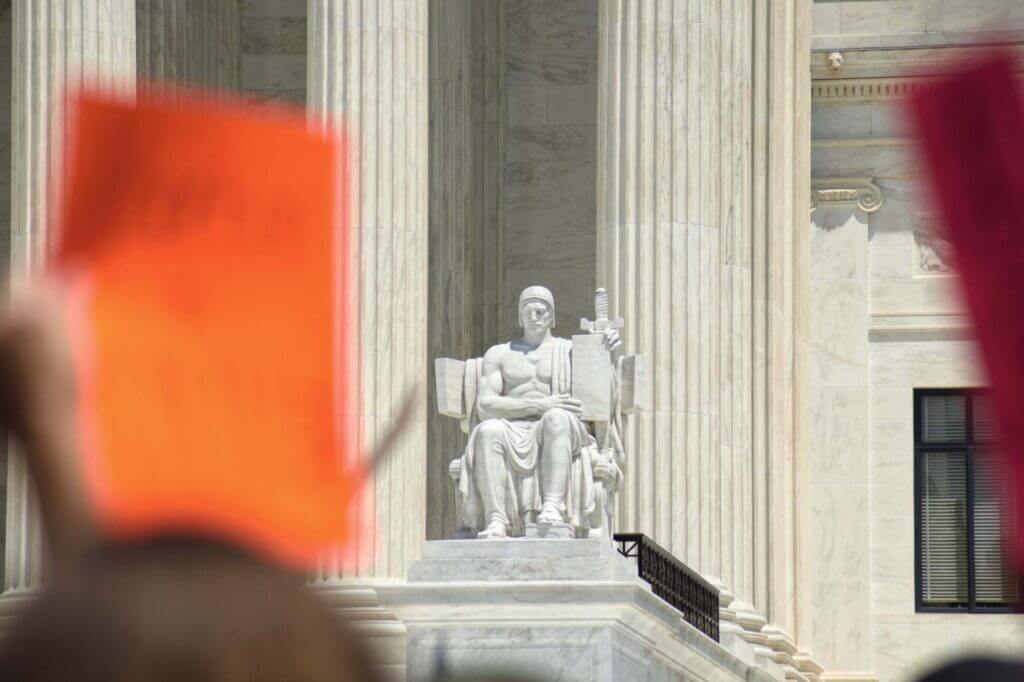A legal battle is happening in government: what if the Supreme Court denies Biden’s funding for the immigration bill?
On Tuesday, the Supreme Court has questioned current President Joe Biden’s authority to implement 2022 deportation priorities in immigration law. This dispute has a long history, dating back to last year, when two courts, one in Texas and one in Louisiana, sued the Administration’s ideas for deciding who is considered a priority for deportation and who is not.
Biden’s main goal would be to target immigration resources wisely and in an organized manner. These deportation priorities would be geared toward first processing cases of individuals who have a serious criminal record and pose a danger to public safety. On the other hand, those individuals who could be deported due to documentation or immigration status issues would not present the government with a situation requiring immediate resolution.

The Republican courts in Texas and Louisiana that argued against these changes strongly contended that Biden‘s and the Department of Homeland Security‘s new deportation policies are illegitimate and violate immigration law. Therefore, the Supreme Court denied Biden the changes, and last year froze the new measures, leaving them in legal limbo.
Now, the battle in the government has been rekindled. There are many issues to be discussed, including financial, social, but mainly political factors. Bipartisan fights are stronger than ever, and immigration is a common focus of contention and disagreement.
At Jaskot Law, our attorneys will tell you all about the reasons why the Supreme Court denies Biden’s new measures, what will happen with the 2022 and 2023 deportation priorities, and much more.
The Supreme Court and its internal discussions
What happens within the Supreme Court is still uncertain, whether there is a majority for or against the September 2021 memorandum issued by Homeland Security Secretary Alejandro Mayorkas, which establishes guidelines for arrests and deportations. There is much to discuss, from financial to political issues, and the directions can diversify widely.
Actually, Tuesday’s session lasted more than two hours. Discussions touched upon all topics, and many leaders spoke from their respective points of view. Among them, Attorney General Elizabeth Prelogar emphasized that Congress never provided the funds to detain everyone, leading different administrations to create various strategies to prioritize limited resources. He spoke against the plaintiff states, arguing that the final authority in resource management should rest with the federal government.
On the other hand, Texas Attorney General Judd Stone, representing Texas and Louisiana, told the court that the Biden Administration could not legally implement the priorities because they run afoul of current federal law. He added that the laws are not discretionary, but are mandatory, and to go against them is to go against what the National Congress established.
What will happen now with deportation policies?
Both parties are strong within the Supreme Court, and it appears that the future of the priorities is still uncertain. The state of Texas has repeatedly opposed to the policies that Biden wanted to establish, especially those related to immigration.
The battle has been hard, and there is still a long way to go until a solution is achieved. Besides, no agreement has been reached yet, so further news from the highest court are yet to be known.
At Jaskot Law, we have a team of specialized attorneys that can inform you about immigration news like this one or any other related matter. Do not hesitate to communicate with our Law Firm, and keep up to date by checking out our immigration blog!
Theodora Carbel stands out as a content creator specializing in the Latino market, taking advantage of her deep knowledge in the field. Her academic background in Sociocultural Anthropology, and her extensive experience in Copywriting focused on U.S. immigration law, have been the foundations to her professional development.


